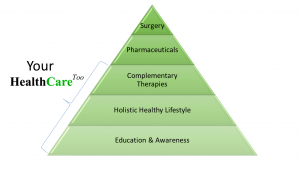The Myth of Exercise

A recent report from the UK’s Academy of Medical Royal Colleges described ‘the miracle cure’ of performing 30 min of moderate exercise, five times a week, as more powerful than many drugs administered for chronic disease prevention and management. Regular physical activity reduces the risk of developing cardiovascular disease, type 2 diabetes, dementia and some cancers by at least 30%. However, physical activity does not promote weight loss. In the past 30 years, as obesity has rocketed, there has been little change in physical activity levels in the Western population. This places the blame for our expanding waist lines directly on the type and amount of calories consumed. However, the obesity epidemic represents only the tip of a much larger iceberg of the adverse health consequences of poor diet. According to The Lancet global burden of disease reports, poor diet now generates more disease than physical inactivity, alcohol and smoking combined. Up to 40% of those with a normal body mass index will harbour metabolic abnormalities typically associated with obesity, which include hypertension, dyslipidaemia, non-alcoholic fatty liver disease and cardiovascular disease. However, this is little appreciated by scientists, doctors, media writers and policymakers, despite the extensive scientific literature on the vulnerability of all ages and all sizes to lifestyle-related diseases.
[Emphasis Added]
Source: It is time to bust the myth of physical inactivity and obesity: you cannot outrun a bad diet
The Truth About Diet
Exercise is great. It brings many wonderful benefits such as reducing risk of various chronic diseases. But exercise does not replace a proper diet. As this article highlights, a person with “normal” body mass index can still suffer from maladies that we associate with obesity. Exercise alone will not prevent “fat” diseases or obesity.
Many factors influence our health. We must approach health holistically and embrace all the factors that determine our health. We cannot selectively focus on just medical interventions or exercise or diet or social interactions or finances among so many determinants or health. Stay balanced!
Our Model

The HealthCare Too model provides for a holistic approach to health. We look for articles and knowledge to help consumers and their care teams make holistic health decisions and also shop for the best deals in holistic health so you can find them here! We appreciate the value of surgery and pharmaceuticals but want to make more pathways available for your HealthCare Too.




